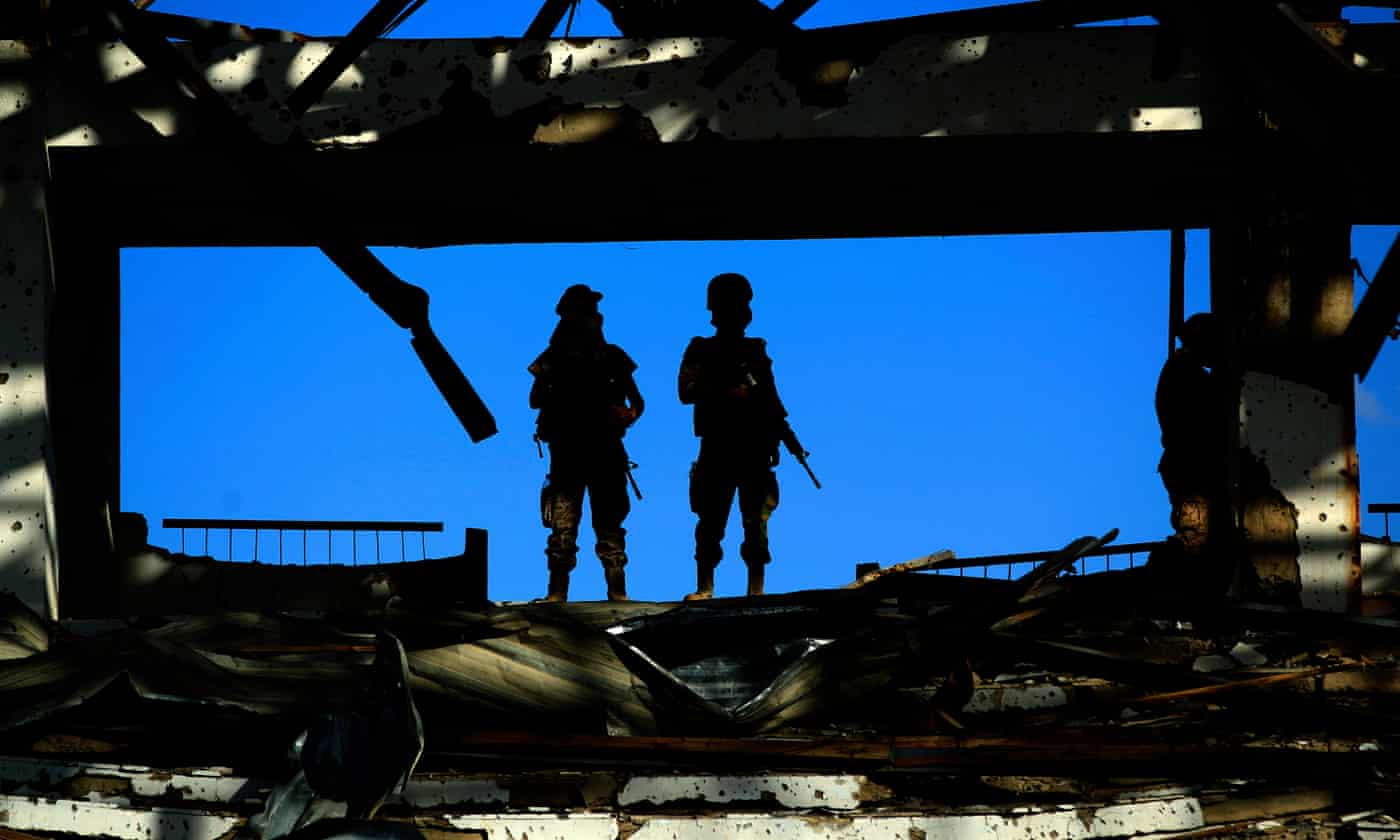The Saudi- and United Arab Emirates-led coalition fighting in Yemen is under unprecedented pressure from the international community to end its involvement in the war after the killing of the Saudi journalist Jamal Khashoggi.
Since the coalition intervened in 2015, Yemen has become the worst humanitarian crisis in the world, according to the UN. Rights groups say up to 56,000 people have been killed, half of the 28 million-strong population are starving and the country is suffering the worst cholera epidemic in modern history.
But who are the coalition fighting, and why has the war descended into a stalemate? Yemen’s Houthi rebels are a decades-old resistance movement, born in opposition to Saudi Arabia’s religious influence. Although they cannot hold out forever against the coalition’s air power and blockades, they say they are determined not to give up.
Origins as an anti-Saudi resistance group
The Houthi movement was founded in the 1990s by Hussein Badreddin al-Houthi, a member of Yemen’s Zaidi Shia minority, which makes up about one-third of the population. Hussein was killed by Yemeni soldiers in 2004, and the group is now led by his brother Abdul Malik.
The Zaidis, once a powerful force in north Yemen, were sidelined during the 1962-70 civil war and then further alienated in the 1980s as Salafist Sunni ideals gained prominence across the border in Saudi Arabia, which exported the ideology to Yemen. In response, Zaidi clerics began to militarise their followers against Riyadh and its allies.
The intermittent insurgency gained support from Shia Yemenis fed up with the corruption and cruelty of the long-time authoritarian president and Saudi ally, Ali Abdullah Saleh, particularly during the aftermath of 9/11 and the US invasion of Iraq.
Role in the Arab spring
Popular protests and several assassination attempts forced Saleh to resign in 2012. The Houthis, as one of the only revolutionary groups with military experience, steadily gained control of territory outside their northern heartlands.
As they grew more powerful they pulled out of transition talks aimed at creating a new and stable Yemeni government after Saleh’s downfall. In 2015 they allied with their former enemy Saleh, seizing the capital, Sana’a, and overthrowing the new president, Abd Rabbu Mansour Hadi.
Goals in Yemen’s civil war
The Houthis’ slogan, known as the sarkha, or scream, is “God is great, death to America, death to Israel, curse on the Jews, victory to Islam.” Apart from the resistance narrative, the Houthis have no stated political or governance goals for Yemen, despite the fact they are currently in control of both Sana’a and Hodeidah, a Red Sea port city through which 80% of the country’s imports flow.
After they seized Sana’a in 2015, forcing Hadi to flee, the exiled Yemeni government asked its allies in Saudi Arabia and the UAE to launch a military campaign to drive out the Houthis.
Last December the Houthis turned on and killed Saleh after realising he was about to switch sides again to ally with the Saudi-led coalition. His death has further destabilised the chaotic Houthi command structure. Infighting is rife among Houthi leaders, military wings and clerics.
Throughout the war the Houthis have been accused of torturing and killing journalists and critics, siphoning off aid supplies, using civilian infrastructure as a shield for military activity and persecuting the country’s Jewish and Baha’i minorities.
Relationship with Iran
The Houthis have variously said their tactics are modelled on those of the Viet Cong and resistance movements in Latin America as well as Lebanon’s fearsome Shia Hezbollah, with which they have obvious kinship.
Both Hezbollah and Iran have increased their provision of guns, missiles, military training and funds for the Houthi war effort since 2014, happy to see their Saudi enemies expend soldiers and money on the Yemeni stalemate.
The extent of Tehran’s influence over the Houthis’ decision-making processes is unclear, however. The Houthis have acted expressly against Iran’s advice on several occasions during the war, including a demand not to take over Sana’a in 2015.
Prospect of peace talks
Peace talks in Geneva in September this year – the first since 2016 – were cancelled after the Houthi delegation failed to arrive, citing security concerns. The UN is now working overtime to ensure the success of new talks, which are supposed to take place in Sweden by the end of November.
Several confidence-building measures are being implemented that were previously lacking, including the evacuation of wounded Houthi fighters to Oman and a security guarantee from Kuwait for travelling Houthi politicians. In turn, the Houthi leadership has said it will stop attacks on the Saudi-led coalition – their most significant concession in years, although there is still evidence of fighting.
The main issue will be the fate of Hodeidah, a significant source of revenue for the Houthis and arguably their most important asset. The UN wants both parties to agree to place it under UN jurisdiction, which it says is the only way to alleviate Yemen’s cholera and malnutrition crises.






